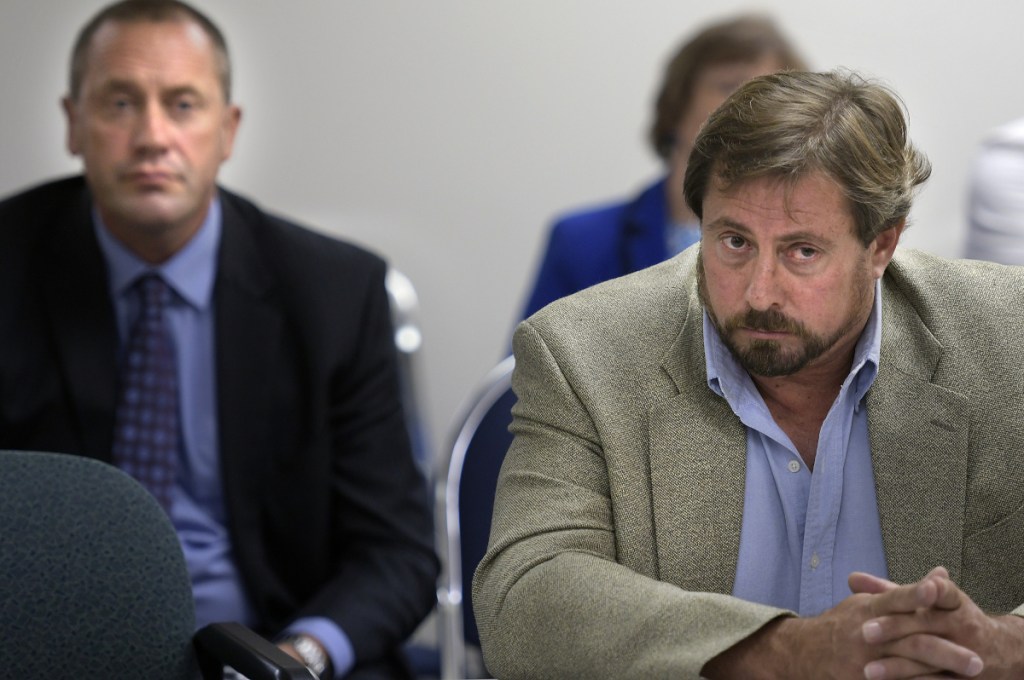The case of Mark Andre, a Clean Election candidate for House District 110 in Waterville and Oakland, just keeps getting more interesting.
During the past two weeks, Justice William Stokes issued a decision essentially directing the Maine ethics and election commission to issue payments totaling $1.4 million to Andre and more than a hundred other qualified candidates, and it was not appealed by the LePage administration. And Thursday, the commission will consider a request from Maine Citizens for Clean Elections that the commission begin drawing on another $3.5 million already in its accounts for further candidate payments.
Andre’s experience, however, is unique and, in a nutshell, shows how many complications and entanglements can result from the refusal by the governor and some legislators to implement and administer clear provisions of state law.
The uniqueness came from the primary race between Andre, a tree farmer and nursery owner, and his opponent, Jacob Imes, in the Republican primary on June 12. Both ran as Clean Election candidates, so the winner should have received initial funding before the June 30 end of the fiscal year, after which, it was thought, the election commission lacked authority to issue payments because of an error in the biennial budget.
However, because of vote-counting delays caused by the first run-through of Maine’s new ranked-choice voting system, the House District 110 race wasn’t recounted until July, meaning it came after the June 30 deadline. Commission Director Jonathan Wayne anticipated this, and proposed a solution — having the state controller’s office cut two checks before June 30, then issue one later to the successful candidate.
Wayne wrote that, “Initially, we received positive feedback on this plan, but we were informed late in the day on June 29 that the Office of the State Controller would not release a payment under these circumstances.”
Andre also had a lengthy meeting with the commission, arguing that his was a special case, but the commissioners decided they didn’t have the authority to act. What Andre, who has run for the District 110 seat twice before, discovered later was that a separate provision of the new rules adopted under a 2015 revision of the law might have covered his case.
The provision concerned recounted races, and applies to just such a circumstance as Andre and Imes found themselves in. The rules say that if the election night margin is less than 1 percent, candidates must freeze their spending and activities. If greater than 1 percent, however, which Andre’s total was, then no freeze is necessary.
This might imply Andre could have received a pre-June 30 payment. That provision is unlikely to be tested, however, because it became moot after the general release of funding, including the $5,078 due Andre.
Still, what we have here is great irony — a race in which there were two Republican candidates qualified for Clean Election funds, but who were derailed by their own party’s decision, on ideological and not legal grounds, to block payments. House Republican Leader Ken Fredette refused to correct the budget error, even while Gov. Paul LePage was refusing to sign a financial order releasing the initial $1.4 million.
Justice Stokes cleared up the financial order issue by saying the commission has all the authority it needs. Now, Citizens for Clean Elections is urging the commission to apply the same reasoning to the state budget.
Stokes’ decision is clear, stating, “The mandatory nature of the distribution of funds to qualified candidates also supports the conclusion that the enactors of the MCEA intended to remove the Legislature and the Governor from the actual distribution of such funds.” The inclusion of “Legislature” is notable.
Citizens for Clean Elections makes a compelling case. The question is whether the commission will find it persuasive.
The commission, designed with five members, has operated with four since the resignation of the longtime “independent” member, Margaret Matheson, the former revisor of statutes. By law, two members are Republicans and two members are Democrats, while the other member may be unenrolled, Greens or Libertarian.
Up to now, it’s been rare to see a partisan split on the commission, but that could now be tested. After years of gradual acceptance of the obvious — that the Clean Election alternative to private fundraising benefits candidates and voters, and doesn’t favor one party over another — some Maine Republican leaders have revived the contention that this is “welfare for politicians.”
Whatever you think of the argument, the law itself is clear. If the commission won’t act now, it’s likely the court will draw the conclusion for it. With fewer than 90 days left to campaign, however, it’s long past time for candidates to get payments they were due months ago.
Sometimes, one has to stand up and be counted.
Douglas Rooks has been a Maine editor, opinion writer and author for 33 years. His new book is “Rise, Decline and Renewal: The Democratic Party in Maine.” He lives in West Gardiner, and welcomes comment at: drooks@tds.net
Send questions/comments to the editors.


